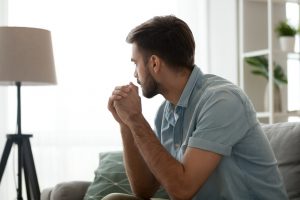
![]()
Coronavirus restrictions continue and we have yet to return to our previous normal, despite attempts. It’s easy to feel lonely when so many people are staying close to home, avoiding gatherings and many businesses are shuttered. For people who experience anxiety, depression or other mental health conditions, the strain of isolation is particularly heavy. A lot of our mental health depends on social connection, physical activity, events and work that bring meaning to us. The current restrictions on social interactions can lead to experiences of isolation, post-traumatic stress disorder, depression and anxiety. There are ways to determine if you are suffering the COVID-19 blues or if it’s something more.
Look at how long it has been going on. If your depression predates COVID-19 and is getting worse now, then maybe you need to speak with a professional. If your symptoms are new and emerged alongside lockdown, it could be more situational and manageable.
Keep an eye out for “not liking anything.” You might be more bored during lockdown, but this symptom is more about finding nothing interesting or engaging, even the things you usually love. This can extend from finding something you want to eat to finding even your favorite television show utterly dull. While this can be normal when you are home too much, it can also be a symptom of depression.
Pay attention to any difficulties with sleep. There’s going to be a certain amount of difficulty with sleep that’s normal during an anxiety-inducing time like this. Sleep deprivation or disturbance over time can be difficult to deal with and drain energy from other things. Depression can also mess with your ability to get a good night’s rest, which can lead to feeling exhausted. It might also be some underlying anxiety, which may often be eased with treatment.
These aren’t ordinary circumstances and humans aren’t especially great at coping with long-term, stressful, isolating situations, especially ones we cannot control. One of the most important things we can do during this time is to be accepting of what we can and cannot do and let go of any sort of pressure on ourselves to be perfect.
![]()
If you are concerned about your mental health, don’t hesitate to seek advice. BHS is available 24 hours a day, 7 days a week by calling 800-245-1150.
![]()
